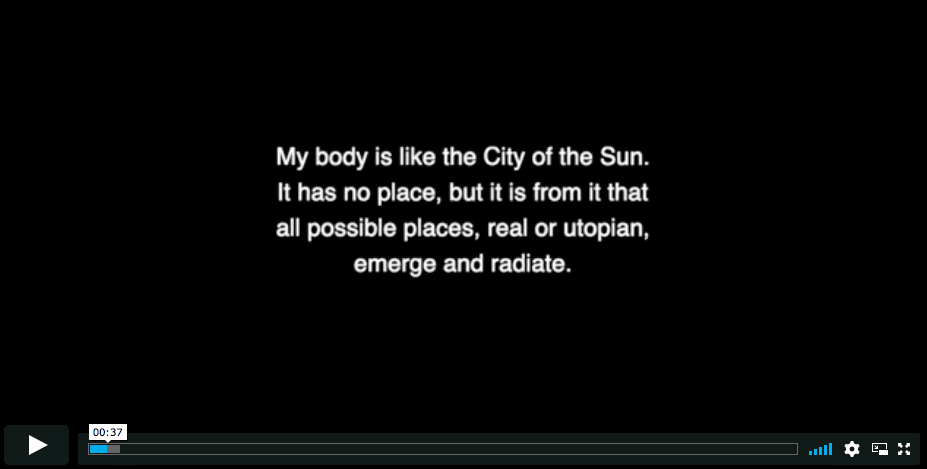Lucas Price – Body Body
Lucas Price is currently exhibiting as part of the inaugural Bangkok Art Bienalle until Feb 2019, with the video work Body Body.
We decided to catch up with him and discuss the emotive, and brutally honest work.

Lucas Price – Body Body
Can you please explain a little about what the video is about, and how you came to make it?
The video is a long series of screen tests of people who at the time of recording were immigrants in Thailand. I was recovering from a stay at a temple, where I had gone to detox from heroin. I felt that my body was under attack, from itself in a way, had been colonised by this thing. So I was thinking about that and the various ways people’s bodies are prone to pressure. I began by recording my drug dealer, then moved outward and began to record his friends, their peers, tourists, diplomats etc. I wanted to make something about my relationship to Bangkok, and it ended up being about being an outsider. So, it’s about that and moving through the world and how the body is coming and going in amongst all of this.
Body Body is obviously an incredibly personal project for you, how have you reconciled making the private public, and how did you decide what to include and what to omit?
I really feel that its a universal set of principles I’m trying to sort out. Like we all have to abide inside of our bodies. And we’re all trying to keep the show on the road. There are personal references, but I think it’s worth being honest if it means that somehow it allows for more of the same? That’s certainly my experience. Other people’s honesty makes room for my own. I don’t know if this works in the same way but it’s partly the intention.
Who are the people in the video, and how much has been explained to them about the project before filming?
The people in the film were…everyone was street cast. I made a studio in the back of a truck which I drove around Bangkok for a week. We went to slums on the outskirts, the hi so areas, the red light district, chinatown. Suburbs, tourist traps, immigration centres. Everyone was made aware that the film was a simple series of portraits, to be screened in a gallery. It was very ad-hoc but everyone was made aware of the nature of the project and I had consent throughout. The most interesting and eager to participate were the african sex workers, who at the time were under an enormous amount of pressure as the result of a crackdown by the Thai police called operation Black Eagle. They were rounded up every couple of nights and extorted or intimidated, squeezed for cash and then ultimately deported or sent to immigration centres on the way to being deported. I think they were the limit expression of that idea of being placed under extreme amounts of pressure.
There are a lot of mentions of the sea and drowning – both in a sinister, foreboding way, but also in a cleansing and regenerating way. What is the significance of water within this particular piece?
The sea…idk, it’s just a good place to be. A large body. It unified a lot of the experiences I have of travelling and being dislocated. It’s also…I was thinking about this idea of experience and awareness, of waves being parts of a whole thing..the wave is not the ocean, the ocean contains all the waves. Also shout out to The Waves by Virginia Woolf.
Do you see this work as being redemptive in any way, or is it a cathartic experience revealing such personal details?
I think the details aren’t so important as maybe trying to be honest and even earnest? I mean I’m cynical, and I don’t know whether the film is successful in any meaningful way…at least in the way I originally intended, but if I think about what is at stake, for me it’s certainly about being honest…like congruous or something.
It’s not about redemption, as much as making sense post meltdown. And whatever works in those conditions right? I’ve chastised myself for including my own stuff in my work in the past but…it’s like Nan Goldin or Brad Phillips. I like that honesty, it’s healing.
Check out his Instagram HERE
(Interview by Benjamin Murphy)
FOR MORE INTERVIEWS, CHECK OUT:
